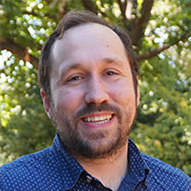Contact Us
Refer a Patient with Attention Deficit Hyperactivity Disorder (ADHD)
Children with attention deficit hyperactivity disorder (ADHD) may have difficulties concentrating on a single task or sitting still. Early diagnosis and treatment of ADHD can help a child manage symptoms and do better in school.
At Children’s Health, we work hard to understand a child’s ADHD – and how the family sees it. We look at different aspects of your child’s health to help them grow up and get on track toward a fulfilling life.
ADHD is a neurological condition, which means that it has to do with how the brain works. The front part of our brain controls executive function skills, like planning and paying attention. A child with ADHD may face challenges with these skills.
ADHD symptoms usually start before age 12 and may be noticeable as early as age three. Symptoms can be mild, moderate or severe.
Both boys and girls can have ADHD, but it is diagnosed more in boys. Children who have trouble focusing (inattentive) may be less likely to get diagnosed than those who can’t sit still (hyperactive).
Children with ADHD often have a higher risk of learning disabilities, and they may have trouble making friends. If they can stay attentive while they are growing up and learn important academic and social skills, they can start adulthood well prepared.
There are three main types of ADHD in children:
A child with this type of ADHD has a hard time focusing and following through on things.
A child with this type of ADHD has a hard time being still and patient.
A child with combined presentation ADHD has symptoms of both inattentive and hyperactive-impulsive ADHD.
The symptoms of pediatric ADHD vary, depending on a child’s age and the type of ADHD they have.
Children who have predominantly inattentive ADHD may:
Children who have predominantly hyperactive-impulsive ADHD may:
Parents or teachers often refer children to our team. To be diagnosed with ADHD, a child must have symptoms for at least six months, and the symptoms must occur in different settings, such as at home and school.
To diagnose ADHD, we work closely with children and their families to do a complete cognitive evaluation. During this evaluation, we will use age-appropriate games and activities to look at your child’s ability to pay attention. We will also assess whether they have any learning disabilities, such as dyslexia, that might not have been noticed before.
We also use psychometric tests, such as Conner’s rating scale, which asks questions about a child’s social, behavioral and academic experiences. Other tests can assess a child's degree of attention or impulse control. We take the time to do full evaluations and to get an in-depth understanding of the child – and of the family's perspective of what the issues are.
The exact causes of ADHD aren’t fully understood. The condition tends to run in families and may be inherited. A stressful environment may help trigger ADHD in a child, and research suggests that some toxic exposures, including lead, may play a role.
Although treatment cannot cure ADHD, it can help manage symptoms. At Children’s Health℠, we work with families to support kids with this condition in several ways.
First, we work with families on making the home and school environments predictable and supportive. At home, a child with ADHD may need consistent routines and good sleep habits. At school, a child may need accommodations under the Americans with Disabilities Act to help create an environment that can support attention and foster self-esteem.
Second, we work with each family to provide the most useful treatment, such as helping a child develop social skills or referring them for counseling for behavioral concerns. We try to be sure that children limit screen time and get as much physical activity as they need.
Third, once the environment and therapeutics are in place, we may consider carefully adding needed medications, if the family feels that this approach would be useful.
Overall, our team will partner closely with your family and child to help you decide what steps to take so that your child can acquire the social and academic skills that they need while growing up.
Our team includes child psychiatrists, psychologists, therapists, nurse managers and neurologists.






Children with ADHD struggle with focusing on topics that they don’t find really interesting. They then can become hyperfocused on those topics to the exclusion of schoolwork or other tasks. This can be especially true in certain electronic games. Typically, a combination of environmental and academic support can be very helpful. In situations where those supports still aren’t enough, the use of medication can help, particularly with academic failures.
Medication can help with ADHD symptoms when combined with changes to the home and school environment as well as other treatments. At Children’s Health, we add medication to other treatments, like counseling, and we are careful not to give more medication than a child needs.
Your child’s ADHD symptoms may change during puberty. While some children’s symptoms may get worse during adolescence, many young people with ADHD find that some symptoms lessen when they become adults. Because academic and social issues can change over time, it’s important to keep visiting your doctor.